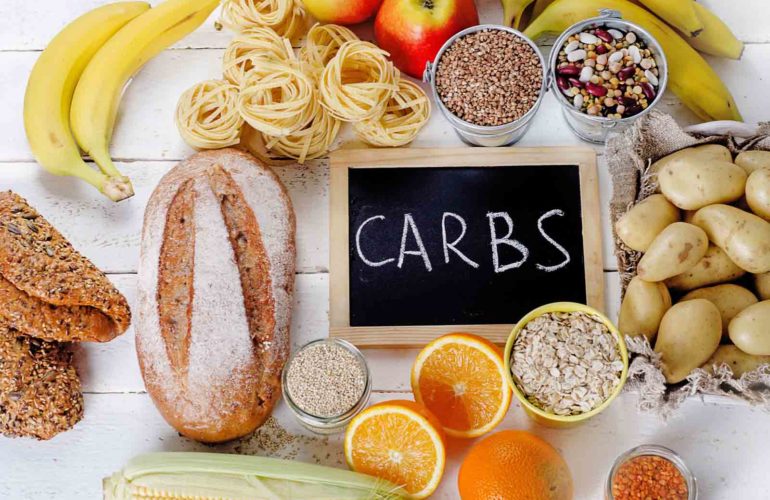What are Carbs ?
Our body obtains energy or calories from three main sources. These are three macro nutrients : Carbs, Proteins and Fats. All these macro nutrients are essential for proper body functioning and the body requires large amounts of them. All the three macro nutrients should be included in our diet as the body cannot produce macronutrients on it’s own. Carbohydrates or Carbs are the sugar, starches and fibers found in fruits, grains, vegetables and milk products. The body breaks these down into glucose, a simple sugar that it can use to feed the cells. Though often referred to as the main cause of weight gain, carbs forms one of the basic food groups and are extremely important. Carbs intake for most people should be between 45% and 60% of the total calories consumed.
Functions of Carbs
- Carbs are the main source of energy for the body
- They regulate the blood glucose in the body
- Carbs are the main source of B vitamins in the body
- Carbs prevents the breakdown of proteins for energy
- Carbs help with fat metabolism
- Breakdown fatty acids and prevents ketosis
- Help clear gut and prevent constipation
- Carbs form a part of genetic material like DNA and RNA
- Helps make up the body mass
- Form components of bio molecules which have a key role in blood clotting
Types of Carbs
There are two types of carbs :-
- Simple carbs
- Complex carbs
Simple Carbs
- These are also called bad carbs
- These have high glycemic index
- Lead to weight gain
- Must be avoided
- Processed food, refined food, desserts, breads, cereals, fruit juices, aerated drinks are examples of simple carbs
Complex Carbs
- Complex carbs are what are good carbs
- Complex carbs have low glycemic index
- These help in weight loss
- These have to be included in the diet
- Whole grain, vegetables, whole fruits, legumes, pulses are some examples of complex carbs
How many carbs in a day?
- The dietary guidelines recommend that 45-60% of our daily calories should come from carbs
- For weight loss, at least 40-50% of daily calories (average of 45%) should come from carbs
Side effects of a low carbs diet
- Not including enough carbs in your diet can have serious ramifications. Some of which are :-
- Weakness
- Fatigue
- Constipation
- Headache
- Hair fall and dull skin
- Anxiety and moos swings
- Low feeling
To avoid all these from happening, we have to ensure that we include sufficient quantity of carbs in our diet
Points to remember
- Eat complex carbs for weight loss
- Portion control is the key for weight loss
- Don’t go for a low carbs diet if you have any chronic disease
- Don’t go for a low carbs diet of you’re physically active and workout regularly
- Make sure 50% of daily calories are coming from carbs
- 40-45% calories should come from carbs initially for those trying to lose weight
- Eating good carbs does not make you gain weight
- Simple carbs have glycemic index which is the number one reason of obesity
How should your meal look like
- 50 % of your diet should consist of seasonal vegetables which have fibre
- Salad, steamed vegetables, cooked sabzi
- Visible fat and probiotics should also form part of this 50%
- 25% of your meal should be protein
- Lentil, legumes, beans, eggs, lean meat and fish should consist of this 25%
- The balance 25% of the meal should be made up of complex carbs including whole grain, roti, rice, daliya, upma etc
Good carbs are low in calories, high in nutrients, devoid of refined sugar and refined grains, high in naturally occurring fibre, low in sodium and saturated fat. They are also devoid of cholesterol and trans fat. Not getting enough carbs can cause serious problems. Good carbsare like fuel for the body. Without carbs the body doesn’t get sufficient glucose, which may cause complications. Carbs are also associated with good mental health. So make sure that you include adequate amount of good carbs in your diet.
